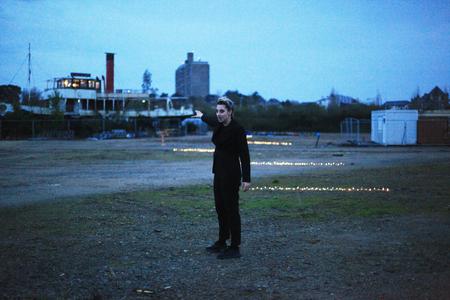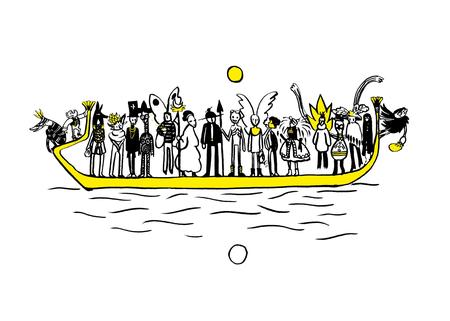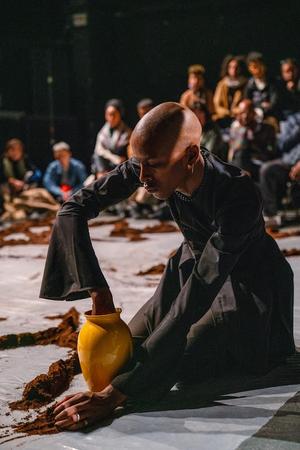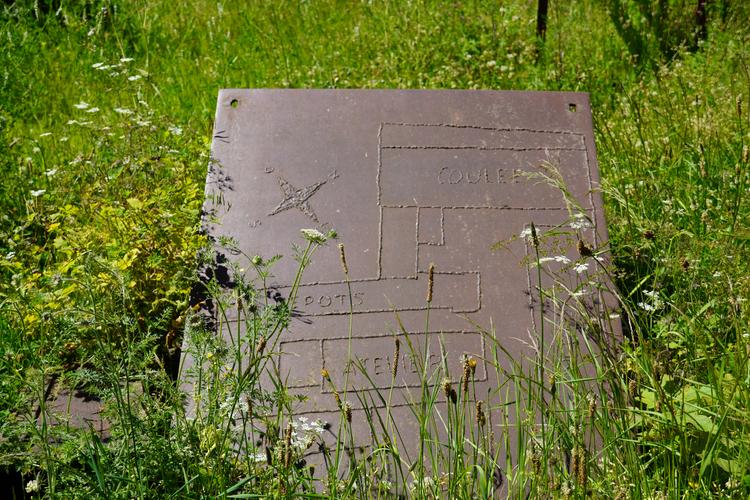Practical Programme
| Sep | 2024 | 09h30 | 13h30 |
Intimacy
- performances
- talks
Rituals of the intimate: when art gives meaning to existence.
9:30 - Welcome
10:00 - Performance

Maryne Lanaro (FR), Métamortem (in French)
Counter-ceremony funeral officiant Maryne Lanaro guides us through a timeline in which we (re)discover the past's death rituals. This journey allows us to take a closer look at the rituals of the present and to ask ourselves "What if we could start again?" Métamortem is a joyful micro-ceremony to make us share our desirable futures for more joyful, sincere and soothing funeral ceremonies.
Bio
Maryne Lanaro is a space dramaturg, director and performer. Her current research focuses on secular funeral rituals and narratives around the concept of "end" (intimate or environmental). With the Grand Dehors collective, she creates works in public space around the notions of commons and rituals. She is a funeral officiant and works with the research team STEEP at the National Institut for Research in Sciences and Digital Technologies in France (INRIA) on narratives surrounding the Collapse, as well as with the Coopérative Funéraire de Rennes (the Funeral Coop of Rennes) on designing new rituals.
11:15 - Introduction, Marine Thévenet (Cifas)
11:30 - Talks by:

Coopérative funéraire de Rennes (Elie Guillou) (FR), Toolbox (in French)
The Coopérative Funéraire de Rennes (The Funeral Coop of Rennes) was created in 2019 with the aim of giving power back to families at the time of death. Over the past 5 years, the way in which they support this return to rituals has been enriched enormously. New ideas and new forms have emerged as a result of contact with individual stories, always driven by the question: what would be meaningful to you? The coop calls these forms its "toolbox". Elie Guillou, a member of the cooperative, will be present to present this toolbox.
Bio
Elie Guillou is a writer, musician and funeral officiant. His current research focuses on secular funeral ritual: as an officiant helping the bereaved prepare and conducting funerals; as part of the Chant Funérailles collective, providing music at ceremonies and exploring the place of music in ritual; and through the writing of a book, a melting pot of experiences and thoughts.

Stacy Makishi (UK),Walking and Talking Each Other Home (in English)
Stacy Makishi will share some personal stories about: why she makes rituals, why she is drawn to rituals and why she is terrified of rituals. She feels that rituals invite the denied, rejected, abandoned, feral parts of her soul to show up; makes the invisible, visible. Beyond words, rituals are the original performance art. They are a form of direct knowing, a knowing from deep in the bones, but also a vast ‘unknowing’, as it is the key to Mystery. Rituals allow her to say with vulnerability and boldness: ‘I don’t know, but I am here’.
Bio
Stacy Makishi is a transplant from Hawaii. Like a bonsai plant, Stacy is small but old. She has been making art for over 40 years. A cross-fertilization of live art, theatre, comedy, film and visual art, her work is as complex as it is accessible; humorous as it is challenging; visual as it is literate. Makishi believes in art’s transformative power and strives to share her creative process with others in order to put more ‘aloha’ into the world.

Alphonse Eklou Uwantege (BE), How I speak to my dead (in French)
How can there be a burial when there is no body? This is the question that Alphonse Eklou Uwantege tries to answer in restes ("remains"): a ritual tribute to his uncle, Alphonse Kanimba, who died during the Tutsi genocide one day in April 1994. restes is about transmission, of this unchosen mortuary heritage that leaves its mark on the living. Remains of a first name, of a history, of a genocide, of a trauma, of a wandering soul that cannot find its way out.
Bio
Alphonse is a 27-year-old queer Sagittarius born in Minsk to a Rwandan and Togolese couple. They are a model, performer and director. Their body is their tool, writing their weapon of resurrection, performance a political emergency. Their method is based on a desire to elude the norms of representation. Their work questions the relation between the performer and spectator by disrupting the space of the stage.
13:30 - Lunch + walk to La Fonderie
Prix libre
